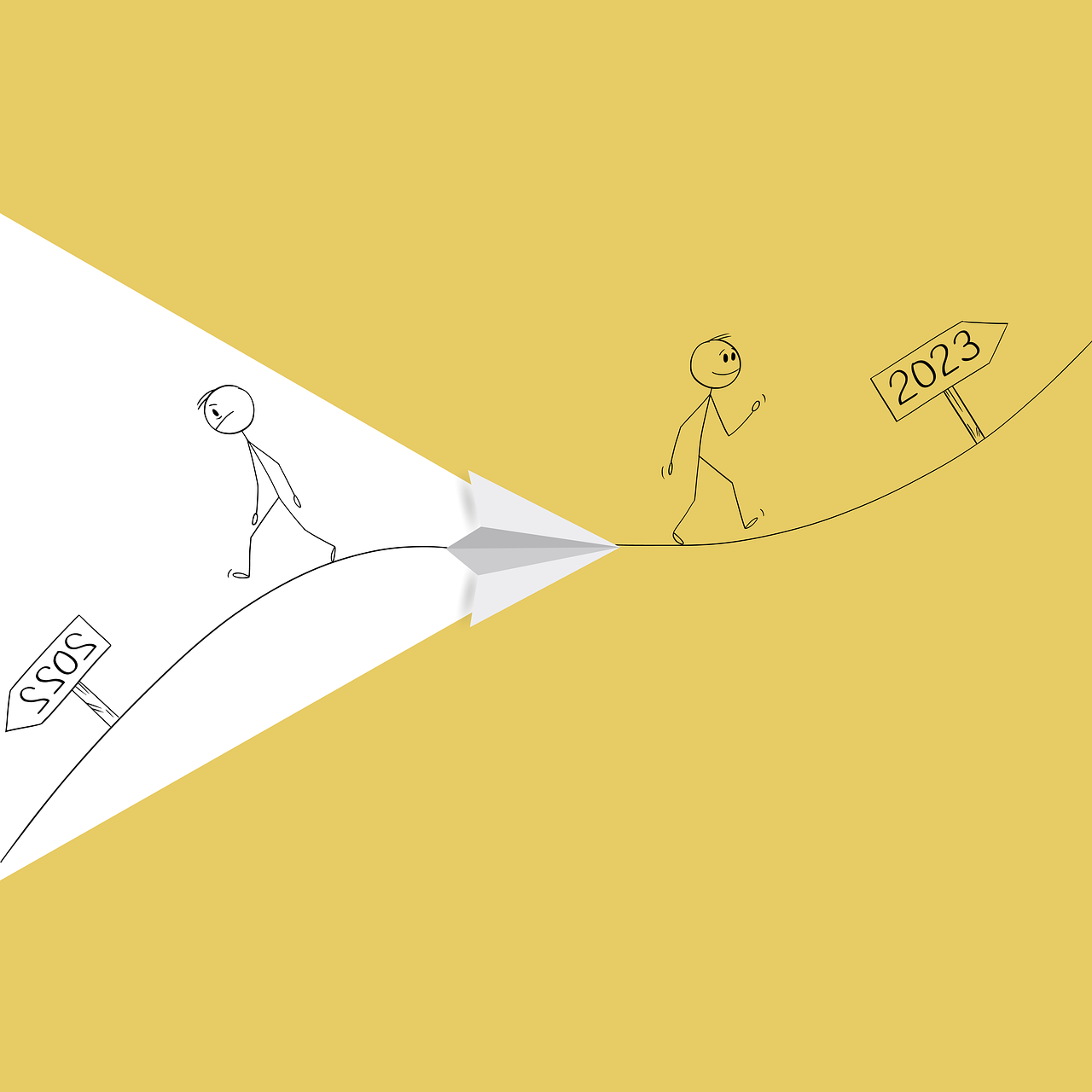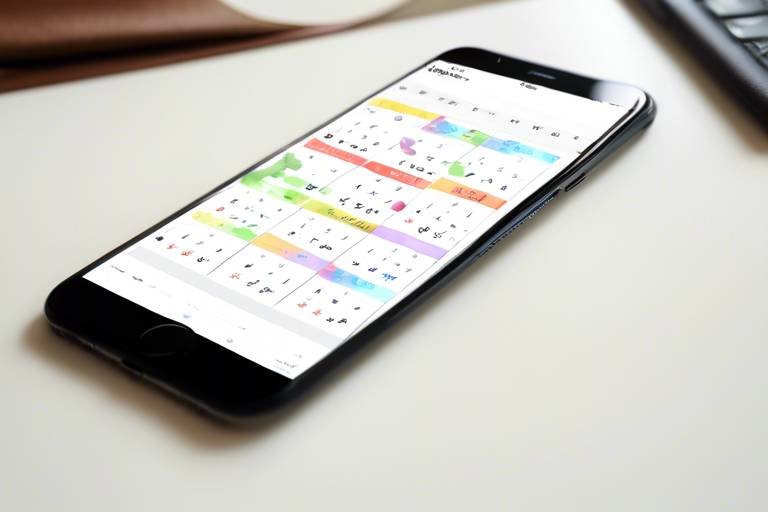Techniques for Improving Self-Discipline and Motivation
Self-discipline and motivation are essential qualities that can propel you towards success in both personal and professional endeavors. By mastering these skills, you can unlock your full potential and achieve your goals with determination and focus.
One effective technique for improving self-discipline and motivation is setting clear goals. When you establish specific, measurable objectives, you provide yourself with a roadmap to follow. These goals should be both short-term and long-term, aligning with your values and aspirations. By having a clear direction, you can cultivate a sense of accomplishment and drive that fuels your motivation.
Another valuable strategy is creating a routine. Developing a structured daily schedule helps you prioritize tasks and manage your time effectively. Consistent habits promote discipline and reduce distractions, allowing you to focus on important activities. By organizing your day, you can enhance productivity and stay on track towards your goals.
Practicing mindfulness is also key to improving self-discipline and motivation. Engaging in techniques such as meditation and deep breathing can help you cultivate self-awareness and emotional regulation. By staying present in the moment, you gain better control over your impulses and can make conscious choices that align with your objectives.
Additionally, seeking accountability partners can provide valuable support on your journey. Connecting with individuals who encourage your growth and hold you responsible for your commitments can boost your motivation. Accountability partners offer feedback, encouragement, and motivation to help you overcome challenges and achieve your desired results.
It's important to reward your progress along the way. Celebrating small victories and milestones reinforces positive behavior and boosts your motivation. Implementing a reward system, whether it's treating yourself or taking breaks, can create a sense of accomplishment that fuels your continued progress.
Practicing self-care is crucial for maintaining your physical and mental well-being. Prioritize activities like exercise, adequate sleep, and healthy nutrition to enhance your resilience and reduce stress. Taking care of yourself increases your energy levels, leading to improved self-discipline and motivation.
Visualizing success through visualization techniques can also enhance your motivation. By imagining yourself achieving your goals in vivid detail, including the emotions and sensations associated with success, you can build confidence and reinforce your commitment to self-discipline. Visualization can inspire you to take action and stay focused on your objectives.
Lastly, learning from setbacks is a crucial part of the self-discipline and motivation journey. Instead of viewing challenges and failures as obstacles, see them as opportunities for growth and learning. Embrace setbacks as valuable lessons, adjust your approach accordingly, and persevere with resilience and determination towards your goals.

Setting Clear Goals
Explore effective strategies for enhancing self-discipline and motivation to achieve personal and professional goals. Discover practical tips to stay focused, overcome procrastination, and maintain a positive mindset for sustained success.
Establishing clear goals is crucial in providing direction and purpose to your efforts. By defining specific, measurable objectives, you create a roadmap towards your desired outcomes. Setting both short-term and long-term targets that resonate with your values and aspirations can fuel a sense of accomplishment and motivation.

Creating a Routine
Establishing a daily routine is like laying the foundation for a sturdy building. It provides structure and stability to your day, allowing you to navigate through tasks with efficiency and purpose. Imagine your routine as a roadmap, guiding you through the twists and turns of your daily responsibilities.
When creating a routine, consider your priorities and the time needed to accomplish them. Start by identifying the most crucial tasks that require your attention and allocate specific time slots for them. This ensures that you tackle important tasks when your energy levels are high and focus is sharp.
Think of your routine as a personal ritual that sets the tone for your day. Whether it's starting with a morning workout, a healthy breakfast, or a few moments of quiet reflection, these rituals can anchor you in the present moment and prepare you for the challenges ahead.
Consistency is key when establishing a routine. By following a set schedule day in and day out, you condition your mind and body to operate at peak performance during designated times. This consistency builds discipline and minimizes the temptation to stray off course.
Flexibility is also important in creating a routine. Life is unpredictable, and unexpected events may disrupt your planned schedule. Embrace adaptability and learn to adjust your routine when necessary, ensuring that you can stay on track even amidst chaos.
Consider incorporating breaks and moments of relaxation into your routine to prevent burnout and maintain productivity. These intervals allow your mind to recharge, fostering creativity and preventing monotony in your daily tasks.
Remember, a routine is not meant to confine you but to empower you. It serves as a tool to enhance your focus, productivity, and overall well-being. Embrace the structure it provides while allowing room for spontaneity and growth within your daily schedule.

Practicing Mindfulness
Explore effective strategies for enhancing self-discipline and motivation to achieve personal and professional goals. Discover practical tips to stay focused, overcome procrastination, and maintain a positive mindset for sustained success.
Establish specific, measurable objectives to provide direction and purpose. Define short-term and long-term targets that align with your values and aspirations, fostering a sense of accomplishment and motivation.
Develop a structured daily schedule to prioritize tasks and allocate time efficiently. Establishing consistent habits promotes discipline and reduces distractions, enhancing productivity and focus on important activities.
Engage in mindfulness techniques such as meditation and deep breathing to cultivate self-awareness and emotional regulation. By staying present in the moment, you can better control impulses and make conscious choices aligned with your goals.
Connect with individuals who support your growth and hold you responsible for your commitments. Accountability partners provide encouragement, feedback, and motivation to help you stay on track and achieve desired results.
Celebrate small victories and milestones along your journey to reinforce positive behavior. Implementing a reward system, such as treats or breaks, can boost motivation and create a sense of accomplishment, fueling continued progress.
Prioritize self-care activities like exercise, adequate sleep, and healthy nutrition to maintain physical and mental well-being. Taking care of yourself enhances resilience, reduces stress, and increases energy levels for improved self-discipline and motivation.
Use visualization techniques to imagine achieving your goals in vivid detail, including the emotions and sensations associated with success. Visualizing positive outcomes enhances motivation, builds confidence, and reinforces your commitment to self-discipline.
View challenges and failures as opportunities for growth and learning rather than obstacles. Embrace setbacks as valuable lessons, adjust your approach accordingly, and persevere with resilience and determination towards your objectives.
Mindfulness is a powerful practice that can significantly improve your self-discipline and motivation. By engaging in mindfulness techniques such as meditation and deep breathing, you can cultivate a greater sense of self-awareness and emotional balance. This allows you to better understand your thoughts and feelings, enabling you to make conscious choices that align with your goals. Mindfulness also helps you stay present in the moment, reducing stress and enhancing clarity of mind. Incorporating mindfulness into your daily routine can lead to increased focus, productivity, and overall well-being.

Seeking Accountability Partners
When it comes to enhancing self-discipline and motivation, seeking accountability partners can be a game-changer in your journey towards personal and professional growth. Accountability partners are individuals who not only cheer you on but also hold you responsible for your actions and commitments. This added layer of support can significantly boost your motivation and help you stay on track when faced with challenges.
By connecting with like-minded individuals who share similar goals and values, you create a supportive network that fosters growth and progress. Accountability partners provide valuable feedback, encouragement, and constructive criticism, helping you navigate obstacles and stay focused on your objectives. Knowing that someone is there to hold you accountable can increase your commitment and drive to succeed.
Moreover, accountability partners can offer fresh perspectives and insights, challenging you to think differently and approach problems from new angles. This collaborative effort not only enhances your self-discipline but also promotes a sense of camaraderie and shared achievement. Together, you can celebrate victories, learn from setbacks, and continuously strive for improvement.

Rewarding Progress
Rewarding progress is a crucial aspect of maintaining motivation and reinforcing positive behavior on the journey towards achieving your goals. By celebrating small victories and milestones, you create a sense of accomplishment that fuels continued progress and boosts your overall motivation. Implementing a reward system can be highly effective in incentivizing yourself to stay disciplined and focused.
One way to reward progress is by setting up a rewards chart or system where you track your achievements and assign a small treat or break for reaching certain milestones. This not only serves as a motivator but also helps you stay engaged and committed to your tasks. By acknowledging and appreciating your progress, you create a positive feedback loop that encourages you to keep moving forward.
Consider incorporating rewards that are meaningful to you personally, whether it's indulging in a favorite snack, taking a short break to relax, or engaging in a hobby you enjoy. The key is to make the rewards proportionate to the level of accomplishment and to use them as positive reinforcement for your efforts. By associating progress with pleasurable experiences, you create a sense of satisfaction that drives you to continue working towards your goals.
Moreover, rewarding progress can help combat feelings of burnout or stagnation that may arise during challenging times. By breaking down your journey into manageable steps and celebrating each step forward, you maintain a sense of momentum and motivation. Remember, progress is not always linear, and acknowledging even the smallest advancements can keep you motivated and inspired to push through obstacles.

Practicing Self-Care
Self-care is a crucial aspect of maintaining overall well-being and enhancing self-discipline and motivation. By prioritizing activities that nurture your physical and mental health, you can effectively recharge and refuel for optimal performance in pursuing your goals. Engaging in regular exercise not only boosts physical fitness but also releases endorphins that elevate mood and reduce stress levels. Additionally, ensuring adequate sleep allows your body and mind to rest and rejuvenate, promoting cognitive function and emotional stability.
Healthy nutrition plays a significant role in sustaining energy levels and supporting mental clarity. Consuming a balanced diet rich in nutrients fuels your body for peak performance and enhances your ability to focus and concentrate on tasks. By paying attention to what you eat and making conscious choices to nourish your body, you can improve overall well-being and increase resilience against challenges that may arise in your journey towards self-improvement.

Visualizing Success
Visualizing success is a powerful technique that involves creating detailed mental images of achieving your goals. When you close your eyes and envision yourself reaching your desired outcomes, you stimulate your subconscious mind to work towards making those visions a reality. This practice goes beyond mere daydreaming; it involves engaging all your senses to immerse yourself in the experience of success.
Imagine every aspect of your achievement - the sights, sounds, smells, and even the emotions you would feel when you reach your goals. By visualizing success in such a vivid manner, you program your mind to focus on the desired outcome and increase your motivation to take the necessary actions to make it happen. It's like creating a mental blueprint that guides your efforts and keeps you driven towards success.
Visualization can also help you overcome obstacles and setbacks by mentally rehearsing how you would handle challenges along the way. By visualizing yourself navigating through difficulties and emerging victorious, you build resilience and confidence in your ability to overcome adversity. This mental preparation can be a powerful tool in maintaining your self-discipline and staying motivated when faced with obstacles.
Moreover, visualizing success can boost your self-belief and confidence levels. When you consistently picture yourself achieving your goals, you start to believe in your capabilities and see yourself as someone who is capable of success. This positive self-perception can significantly impact your motivation and drive, as you align your actions with the confident image you hold of yourself.
Incorporating visualization into your daily routine can serve as a constant reminder of your objectives and keep your goals at the forefront of your mind. Whether you visualize success through meditation, vision boards, or simply taking a few moments to imagine your desired outcomes, this practice can be a potent tool in enhancing your self-discipline and motivation on your journey towards personal and professional growth.

Learning from Setbacks
Setbacks are an inevitable part of any journey towards success. Instead of viewing them as roadblocks, it is crucial to reframe setbacks as opportunities for growth and learning. Each setback presents a chance to reassess your strategies, identify areas for improvement, and refine your approach. By embracing setbacks with a positive mindset, you can extract valuable lessons that contribute to your overall development.
When faced with a setback, it is essential to analyze the situation objectively and identify the factors that led to the unfavorable outcome. Reflect on what went wrong, what could have been done differently, and what lessons can be learned from the experience. This self-reflection process allows you to gain insights that can be applied to future endeavors, increasing your resilience and adaptability.
One effective way to learn from setbacks is to seek feedback from mentors, peers, or trusted individuals in your network. External perspectives can offer fresh insights and alternative viewpoints that may not be apparent to you initially. Constructive feedback provides an opportunity to gain new perspectives, challenge assumptions, and discover blind spots that could be hindering your progress.
Moreover, reframing setbacks as stepping stones to success can shift your perspective from failure to growth. By acknowledging that setbacks are temporary obstacles that can be overcome with perseverance and determination, you empower yourself to bounce back stronger and more resilient than before. Every setback is a chance to test your resolve, adaptability, and commitment to achieving your goals.
Frequently Asked Questions
- How can setting clear goals help improve self-discipline and motivation?
Setting clear goals provides a roadmap for your actions, giving you a clear direction to work towards. When you have specific, measurable objectives, you can track your progress and feel a sense of accomplishment as you achieve each milestone. This clarity helps to maintain focus and motivation, driving you towards success.
- Why is creating a routine essential for enhancing self-discipline?
Creating a routine establishes structure in your daily life, helping you prioritize tasks and manage your time effectively. By developing consistent habits, you reduce decision-making fatigue and minimize distractions, allowing you to concentrate on important activities. A well-defined routine fosters discipline and reinforces positive behaviors, leading to improved self-discipline.
- How does practicing mindfulness contribute to boosting motivation?
Engaging in mindfulness techniques like meditation and deep breathing promotes self-awareness and emotional regulation. By being present in the moment, you can better control impulses and make conscious choices aligned with your goals. Mindfulness helps reduce stress, increase focus, and enhance motivation by fostering a clear and calm mindset.
- Why is seeking accountability partners beneficial for maintaining motivation?
Having accountability partners offers support, feedback, and encouragement on your journey towards achieving your goals. These individuals help keep you accountable for your commitments, providing motivation and guidance when faced with challenges. By sharing your progress and setbacks with accountability partners, you stay motivated and committed to your personal growth.
- How can visualizing success impact self-discipline and motivation?
Visualizing success involves imagining yourself achieving your goals in detail, including the emotions and sensations associated with that accomplishment. This practice helps build confidence, enhance motivation, and reinforce your commitment to self-discipline. By visualizing positive outcomes, you create a strong mental image of success, which fuels your drive to stay focused and determined.
















